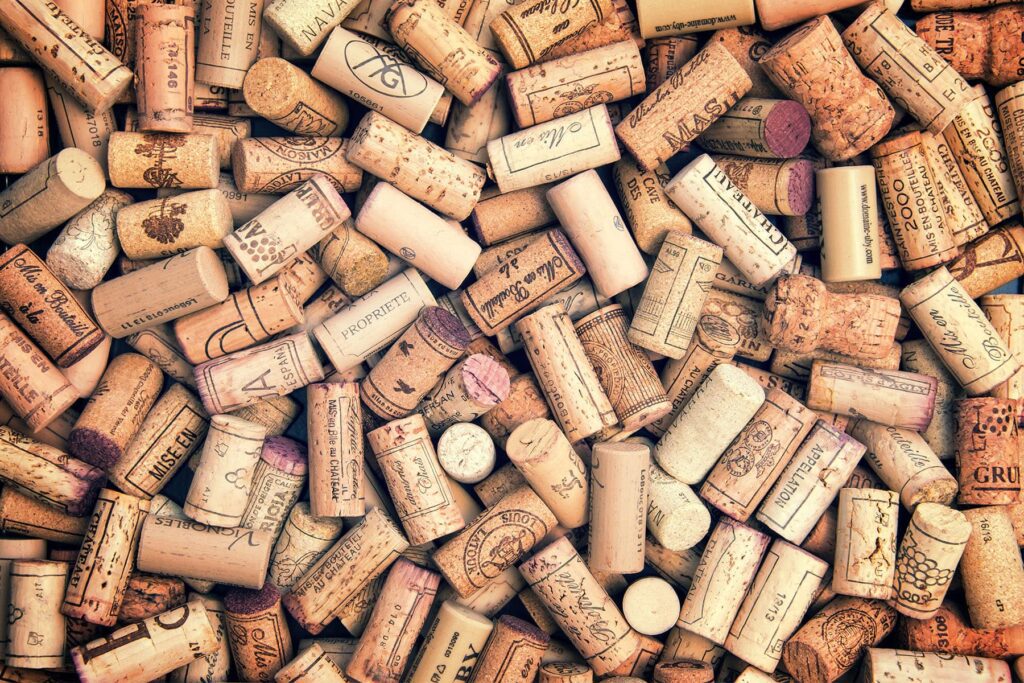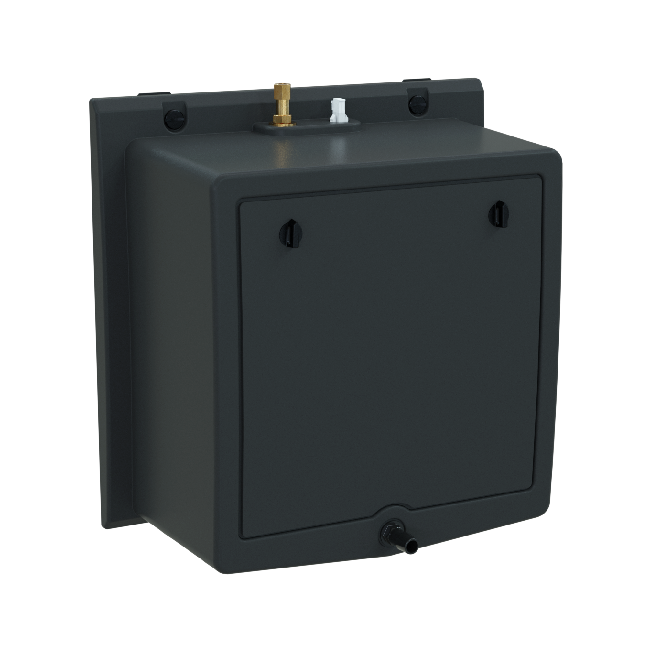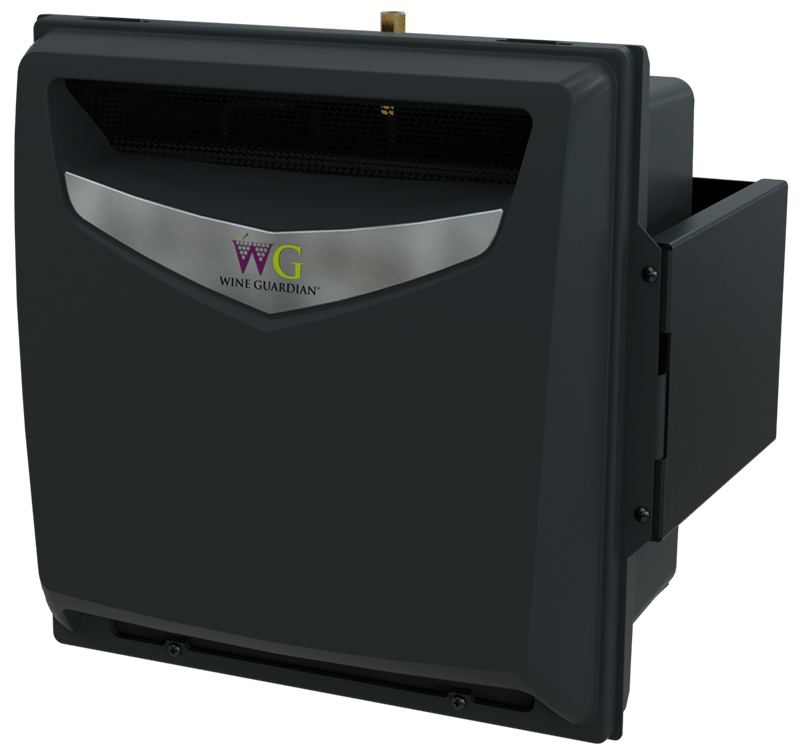At the cornerstone of wine preservation is a robust and reliable climate control system. Temperature control is an undisputed essential, while humidity control is considered by some to be discretionary when it comes to protecting our prized vintages. Even serious wine collectors may forgo additional humidification because they operate under the assumption that simply maintaining a consistent 55 °F to 57 °F (12 °C to 14 °C) is sufficient.
At Wine Guardian, we believe that temperature and humidity go hand in hand and have designed our systems accordingly. To understand why wine cellar humidity control is so crucial in the long-term storage and aging of wine, we must begin with the science behind it.

The Dangers of Improper Humidity in Wine Storage
The aging of wine is a chemical process that depends upon the presence of oxygen. An intact cork will allow a small amount of oxygen into the wine while releasing naturally occurring gases. There are misconceptions that tight corks and wrappers are impervious and prevent this exchange, which is incorrect. Corks and wine bottle wrappers are permeable specifically for this vital exchange, or else wine would not age. Moreover, wines in screw-top bottles do not age due to the absence of oxygen and are meant for shorter-term storage.
Humidity is a critical yet often overlooked factor in proper wine storage and cellar design. A relative humidity (RH) of 60% is considered ideal; however, RH in the 50% to 70% range is an acceptable level of wine cellar humidity. If levels drop below this range or exceed it, this can negatively impact your wine quality in several ways.
Low Humidity (Below 50%)
In the absence of enough humidity, a cork will begin to dry out and may crumble when the bottle is opened. This compromises the cork’s seal. In addition to bits of a dry cork being pushed into the bottle, the appropriate exchange of oxygen and gases will be disrupted without enough moisture present, and the wine may degrade and evaporate.
High Humidity (Above 70%)
Too much humidity is also problematic. In the presence of relative humidity levels above 70%, mold and bacteria may infiltrate and damage wine. Condensation throws off the aging process and may also result in glue degradation and label peeling. More oxygen is present in air with excess moisture and will cause the wine to emit bad odors that jeopardize the quality of the vintage.
How to Monitor Wine Cellar Humidity
In wine cellars with low humidity, you may sense that the air is dry or see some of your corks crumbling. Insufficient humidity is also identifiable by monitoring wine levels within your bottles. Evidence of the movement of moisture and oxygen passing through the cork lies in the ullage — the empty portion at the top of an unopened bottle of wine. Over long storage periods, the ullage in a wine bottle generally increases, with low humidity accelerating receding wine levels.
As for high humidity, look for such signs on your bottles or cellar walls as:
- Condensation patches or droplets
- Mold
- Saltpeter
You might also become aware of foul odors or dampness in the air within your cellar. Being cognizant of what to watch for and monitoring the conditions in your space will help alert you to the need to lower wine storage humidity.
If you are unsure about the current humidity level in your wine cellar, you can use a hygrometer for verification. This device will give you a real-time measurement of how much water vapor is in the air. It evaluates the air’s relative humidity on a scale of 0% to 100%. A hygrometer may also measure absolute humidity and dew point. With many types available, you can choose from various hygrometer sizes and designs to find one with the shape and features that best suit your needs.
Preventing Humidity Problems in Your Wine Cellar
Problems resulting from humidity issues can be solved or avoided with the right planning.
Vapor Barrier
Your first step in safeguarding against humidity-related problems should be installing a vapor barrier around the entire storage room. We recommend using at least 4 mil. plastic, and then overlapping and taping the seams. You should install it on the exterior (or warm side) of the cellar’s insulation to prevent condensation from forming on the barrier and causing mold.
Wine Cellar Cooling Systems and Humidifiers
It takes more than a cooling unit to add moisture and properly humidify the air within a wine cellar. In fact, cooling units can remove some moisture from the air. Your best option is a humidifier integrated into a cooling unit, which will evenly distribute moisture in the recirculating air as it operates. You can also install a freestanding humidifier along with a cooling unit; however, please note that this must be controlled using a high-quality, wall-mounted thermostat.


Wine Cellar Humidifiers: The Solution for Optimal Humidity
Wine Guardian wine cellar humidifiers are designed to increase humidity levels and provide the ideal humidity for a wine cellar to age your collection properly. With advanced air-sensing technology for monitoring relative humidity, Wine Guardian humidifiers will automatically adjust for your storage space’s environmental conditions.
Wine Guardian offers both integrated and freestanding humidifiers. Our integrated humidifier is designed to attach directly to one of our ducted or ducted split cooling systems without requiring a separate power source. By installing it in a room adjacent to your cellar, you will have more space for your collection. For freestanding options, you can select a wall-mounted freestanding humidifier compatible with our ductless split and through-the-wall systems. Additionally, we have a freestanding model that works with any competitor’s wine cellar cooling system. This model can work independently of any cooling system.
Need Help With Wine Cellar Humidification? Contact Us for Expert Advice.
We hope that, by having this understanding of the chemical process behind aging wine, collectors around the world will be empowered to avoid the disastrous effects of considering humidity control optional. Utilizing a humidifier in your wine storage space will ultimately help you protect your investment along with the flavor of your wine.
For more information on how a Wine Guardian humidifier for your wine cellar can support optimal humidity conditions, contact our team today.

